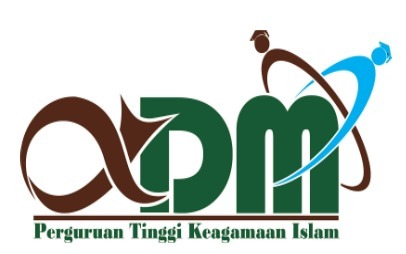The Perceptions of Mathematics Teacher about Students’ Difficulties in Online Learning
DOI:
https://doi.org/10.21580/square.2023.5.1.11162Abstract
The Covid-19 explosion has changed all activities, including the learning process. The existence this pandemic makes all sectors try to find the best solution. This needs to be done so that all systems are well maintained. One solution during the pandemic is learning activities with online activities. Online learning without face to face certainly raises some problems. New activities make teachers and students must adapt to new learning conditions. In addition, various obstacles provide a paradigm that applying online learning is difficult. The difficulty of carrying out online learning is certainly not only felt by student but also teacher feel the same way. However, it is the teacher’s responsibility to address their difficulties and students’ difficulties. To determine an effective solution in overcoming students’ difficulties, further research is needed to determine the aspect that promote students’ difficulties in online learning. Through this survey research, researchers wanted to see how mathematics teacher’s perception about students’ difficulties when participating in online learning. Most teachers’ perceptions indicate that aspects of facilities and infrastructure, learning activities and environment are the main factors which promote students’ difficulties in online learning.
Keywords: perception of athematics teacher, students’ difficulties, online learning
Downloads
References
Allen, I. E., & Seaman, J. (2017). Digital Learning Compass: Distance Education Enrollment Report 2017. Babson Survey Research Group.
Ariyanti, G., & Santoso, F. G. I. (2020). Analysis of mathematics learning outcomes in senior high school students in Madiun Citu, Indonesia in COVID-19 pandemic. Journal of Physics: Conference Series 1663.
Baety, D. N., & Munandar, D. R. (2021). Analisis efektifitas pembelajaran daring dalam menghadapi wabah pandemic covid-19. EDUKATIF: Jurnal Ilmu Pendidikan, 3(3).
David, S. B., Kushilevitz, E., & Mansour, Y. (1997). Online learning versus offline learning. Machine learning, Netherlands: Kluwer Academic Publisher.
Faisal, M. N., Mardiana, T., & Japar, M. (2021). Metode pembelajaran matematika di sekolah dasar saat pandemic covid-19. Jurnal Riset Pendidikan Daras (Jrpd), 2(2).
Gunawan, I. (2017). Instructional management in Indonesia: a case study. Journal Of Arts, Science & Commerce, 8(1).
Klobas, J. E., & McGill, T.J. (2010). The role of involvement in learning management system success. J. Comput High Educi, 114-134, DOI 10.007/s12528-010-9032-5.
Kristina, M., Sari, R. N., & Nagara, E. S. (2020). Model pelaksanaan pembelajaran daring pada masa pandemic Covid-19 di Provinsi Lampung. Jurnal IDAARAH, IV (2).
Meylani, R, Bitter, G., & Legacy, J. (2015). Desirable characteristics of an ideal online learning environment. J of Edu and Soc Reaserch, 5(1).
Nur, F. (2021). Students’ mathematics learning outcomes through online learning. Primary: Jurnal Pendidikan Guru Sekolah Dasar. 10(3).
Saiful Mujani, Research and Consulting SMRC, retrieved from https://saifulmujani.com/
Saljo. R. (1979). Learning about learning. Higher Education, 8, 443- 451.
Sasmita, L & Ahmad, M. R. S. (2017). Faktor penyebab ketidakatifan siswa kelas XI IPAS 4 dalam proses belajar mengajar di SMA N 12 Makassar. Jurnas Sosialisasi : Jurnal hasil pemikiran, penelitiam, dan pengembangan keilmuan sosiologi pendidikan, 4(2).
Simanjuntak, D. R., Ritonga, N., & Harahap. M. S., (2020). Analisis kesulitan belajar siswa melaksanakan pembelajaran secara daring selama masa pandemi covid-19. Mathematic Education Journal, 3(3).
Simanora, R. M. (2020). The challenges of online learning during the COVID-19 pandemic: an essay analysis of performing arts education students. Studies in learning and Theaching, 1(2).
Sterm, J. Introduction to Online Teaching and Learning available on: http://www.sloan-c.org/resources/index.asp
Yunita, E., Arafat, Y., & Mulyadi, M. (2020). The function of class teacher educational management in improving students’ learning outcomes. Journal Of Social Work and Science Education.
Downloads
Published
Issue
Section
License
The Authors submitting a manuscript do so on the understanding that if accepted for publication, copyright of the article shall be assigned to Square: Journal of Mathematics and Mathematics Education as the publisher of the journal. The copyright form should be signed originally and send to the Editorial Office in the form of original mail, scanned document to [email protected]
Square : Journal of Mathematics and Mathematics Education by Mathematics Department UIN Walisongo Semarang is licensed under a Creative Commons Attribution-ShareAlike 4.0 International License.




























